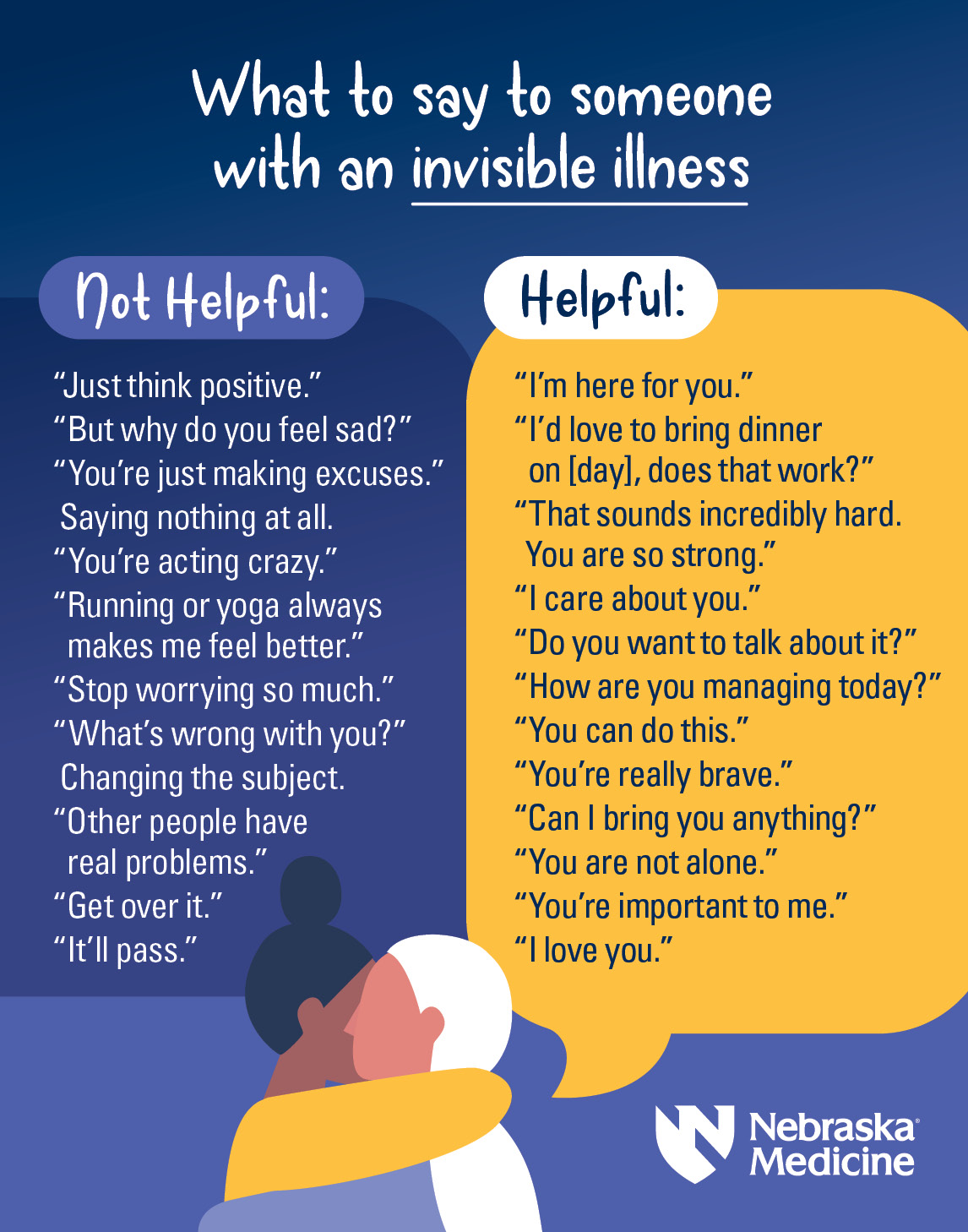3 ways to support a loved one suffering from a mental illness

According to the National Institute of Mental Health, an estimated 26% of Americans 18 or older have a diagnosable mental disorder in a given year. That means approximately 1 in 4 Americans are dealing with a mental illness at any time. Because of this, it’s important to understand how to support a loved one who may be struggling.
Fighting against the stigma
The brain is an organ -- just like the heart or liver -- only far more complex. “Oftentimes, we need medication to regulate other organs. Some of us need medications for our brain,” says Jill Hart LIMHP, LPC, PMH-C. “There are medical diagnoses for our brain just like there are for other organs.”
Unfortunately, mental health continues to carry a stigma, unlike other medical diagnoses like thyroid disease or a broken leg. Even therapy, which is often vital for recovery, isn’t always viewed as essential. “Mental health therapy is just another type of therapy for a vital organ in our body – the brain,” says Hart.
Ultimately, breaking the stigma around mental health comes down to accepting a condition a loved one has that others might not understand. By talking about the condition, you can help loved ones understand what you’re going through and how they can support you.
“A lot of breaking down the stigma is about being comfortable with yourself and your emotions,” says Hart. “The more comfortable you are with your emotions, the better you can manage them and allow others to experience their own emotions around you.”
Then, we can have open conversations about mental health. Some people may feel anxious about discussing such sensitive subjects, but it’s necessary to help break down this stigma. “The more open we are about discussing these topics, the better off we’ll all be,” says Hart.
The STOP method
An important skill for anyone who wants to assist a loved one with a mental illness is the STOP method. STOP is an acronym that stands for:
- S – Stop what you’re doing.
- T – Take a step back. It can be internal or external.
- O – Observe what’s happening around and within you.
- P – Proceed mindfully. Move forward in a way that won’t make things worse.
Learning to practice something like the STOP method can help you slow down and not be so reactionary in the moment. “As simple as this sounds, it can be a game-changer for both patients and their families to take a step back and come together in a more neutral and supportive way,” says Hart.
Validation
There tends to be a lot of invalidation when it comes to mental illness. “Invalidation means we disagree with how somebody’s handling something or how they should feel about it,” says Hart. People tend to express these feelings in an unhelpful way. So, taking the time to validate what your loved one is experiencing is key.
If a loved one with a mental illness discusses a feeling with you, validating these feelings can help them feel supported. “You don’t have to validate their actions or choices, but you can always validate how they’re feeling,” says Hart.

Once you’ve validated their feelings, you can come to a neutral place. Then, when they’re ready, have a conversation about how they could’ve done things differently. “What you don’t want to do is react to them in an intensely emotional way, because it’s almost never helpful,” says Hart. “It rarely comes across in a way that will build that relationship up or change how they behave.”
Practicing self-validation is also important. When you learn to validate your own feelings and emotions, you’re better able to validate others and feel more comfortable with their emotions too.
Treating mental illness
Some people believe they’re beyond help, but Hart insists this isn’t right. “I have a lot of patients say they’re too broken to help or change, but I have yet to find a patient for whom that’s true,” says Hart. “I don’t think that exists.”
Unfortunately, our society often teaches people to invalidate themselves and their feelings. Through this invalidation, you create distrust within yourself. But, by recognizing and validating your own feelings, you can grow your self-trust and self-confidence. “When you have trust in yourself, then healing is accessible,” says Hart. “It’s going to take a lot of work, but it’s possible.”





